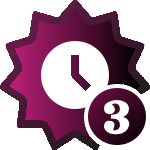
Alex Weidmann
-
Posts
487 -
Joined
-
Last visited
-
Days Won
16

Alex Weidmann last won the day on February 25
Alex Weidmann had the most liked content!

The recent visitors block is disabled and is not being shown to other users.
Alex Weidmann replied to Tunndy's topic in Orchestral and Large Ensemble
Alex Weidmann replied to Martin Kristek's topic in Orchestral and Large Ensemble
Alex Weidmann replied to PaavolaPyry's topic in Chamber Music

Tagged with:


